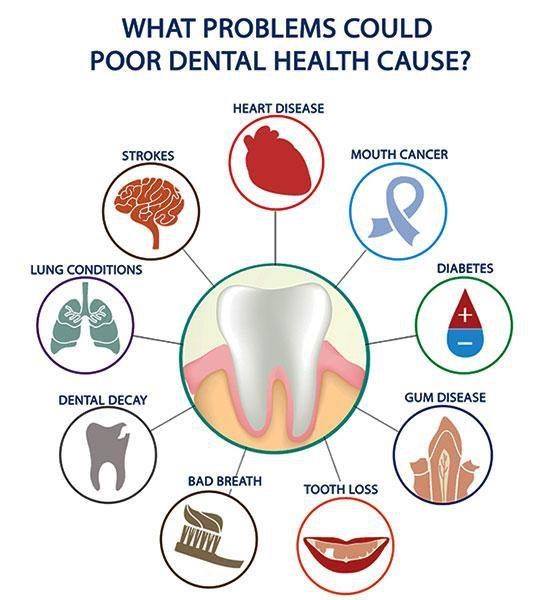At George Street Dental Surgery, we believe that a healthy mouth is key to a healthy body. Many people view oral health as separate from general health, but the reality is that they are closely connected. A growing body of research reveals that your oral health can offer significant insights into your overall well-being and, conversely, that many health conditions can have an impact on your oral health.
In this blog post, we’ll explore the connection between oral health and general health, the potential health risks associated with poor oral hygiene, and how to protect both your smile and your body.
How Oral Health Affects Overall Health
Your mouth is a gateway to your body. It’s teeming with bacteria—most of which are harmless—but without proper oral hygiene, these bacteria can reach levels that might lead to oral infections such as tooth decay and gum disease. Moreover, certain oral bacteria can travel to other parts of the body, potentially contributing to various health conditions.
1. Heart Disease
Several studies have established a link between gum disease (periodontitis) and heart disease. Chronic inflammation caused by periodontal disease may lead to the narrowing of arteries (atherosclerosis), increasing the risk of heart attacks and strokes. Bacteria from the mouth can also enter the bloodstream, causing inflammation in blood vessels and further exacerbating heart conditions.
Tip: To lower your risk, maintain good oral hygiene practices—brushing twice daily, flossing, and attending regular dental check-ups.
2. Diabetes
The relationship between oral health and diabetes is a two-way street. People with diabetes are more susceptible to gum disease, as they are less capable of fighting infections. On the other hand, severe gum disease can make it more challenging to control blood sugar levels, creating a vicious cycle. Managing oral health is crucial for diabetic patients to help maintain stable blood sugar levels and prevent complications.
Tip: If you have diabetes, it’s especially important to monitor your oral health closely and consult your dentist regularly.
3. Pregnancy Complications
Hormonal changes during pregnancy can increase the risk of oral health issues like gum disease and cavities. Research shows that pregnant women with gum disease may be at a higher risk of preterm birth and low birth weight babies. Keeping up with dental care during pregnancy is vital for both maternal and fetal health.
Tip: Expectant mothers should prioritize dental care, as untreated gum disease can have implications beyond just the mouth.
4. Respiratory Issues
Bacteria in the mouth can be inhaled into the lungs, causing respiratory infections like pneumonia. This is particularly concerning for individuals with compromised immune systems or existing respiratory conditions. Good oral hygiene practices help reduce the bacterial load in the mouth, subsequently lowering the risk of respiratory infections.
Tip: Daily brushing and flossing can reduce the number of harmful bacteria in the mouth, helping protect your respiratory health.
How Health Conditions Can Affect Oral Health
Just as oral health can impact your body, overall health conditions can manifest in your mouth. Here are a few examples:
- Osteoporosis: This bone-weakening disease can affect the bones in your jaw, leading to tooth loss and other oral health issues.
- Autoimmune Diseases: Conditions like Sjögren’s syndrome, which causes dry mouth, can increase the risk of tooth decay and gum disease.
- Medications: Certain medications, including those for heart disease, depression, and allergies, can cause dry mouth, reducing saliva production. Saliva plays a crucial role in neutralizing acids and washing away food particles, so a decrease can lead to an increased risk of tooth decay.
Steps to Improve Your Oral and Overall Health
Given the strong link between oral health and overall health, taking care of your mouth is one of the best things you can do for your body. Here are some tips to help:
- Brush and Floss Daily: Use fluoride toothpaste to brush twice daily and floss at least once a day to remove plaque and food particles.
- Regular Dental Check-ups: Visit your dentist every six months for a check-up and professional cleaning. If you have a health condition like diabetes or heart disease, more frequent visits may be advisable.
- Maintain a Healthy Diet: Eating a balanced diet rich in vitamins and minerals supports both oral health and overall wellness. Limit sugar intake, as it contributes to tooth decay.
- Stay Hydrated: Drinking water helps wash away food particles and bacteria in the mouth while promoting saliva production.
- Avoid Tobacco Products: Smoking and tobacco use are major risk factors for gum disease, tooth decay, and oral cancer.
- Manage Health Conditions: If you have a condition like diabetes, work closely with your healthcare provider to manage it effectively, as this will also benefit your oral health.



